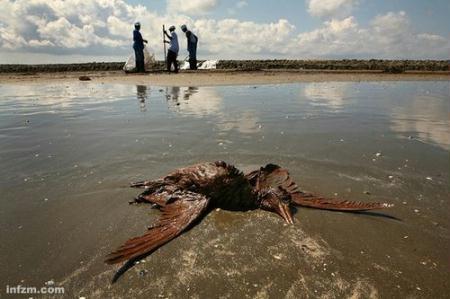| Videos | ? Latest |
|
? Feature | ? Sports | ? Your Videos |
BP tops Forbes List of 2010 biggest corporate blunders

Corporate reputation is a fragile thing. From oil spills to car recalls to hefty bonuses in a time of crisis. What takes years to build can indeed be ruined overnight. And Forbes has recently announced the creme de la creme. Its the list of this year's biggest corporate blunders.
2010 was a banner year for corporate blunders. BP's oil spill tops the list of disasters. The British oil giant spent years building its image as an environmentally friendly company, only for it to go up in smoke earlier this year, when an explosion killed 11 workers and released the now notorious flow of oil into the Gulf of Mexico.
The second company listed is Toyota. The Japanese automaker earned a reputation for safety and quality among US consumers, but those credentials took a major hit when the company became mired in a series of recalls involving sticky accelerator pedals.
And then there's Johnson and Johnson. In April, the company's McNeil Consumer Healthcare division yanked 136 million over-the-counter children's medicine bottles off the shelves for problems including trace metal elements and too much of an active ingredient in its children's Tylenol.
The fourth listed company is Goldman Sachs, the company America loves to hate. At a time when consumers were scrambling to make ends meet, the investment bank felt the heat for its practice of rewarding employees with hefty bonuses and engaging in a form of reverse trading.
HP also made the list. The company ousted Mark Hurd, who was seen at the time as a highly capable CEO, for "standards of business conduct." But news reports say Hurd was really kicked out for prematurely leaking acquisition plans.
Google came off looking pretty shabby too when it inadvertently collected user data sent over wi-fi networks.
It wasn't only major disasters. There were plenty of company and executive gaffes. Such as when Steve Jobs blasted the media when Apple's iPhone 4 was found to have antenna problems.
Many of these incidents are evidence of the power of public opinion and proof that not all publicity is good publicity.
 0
0 







